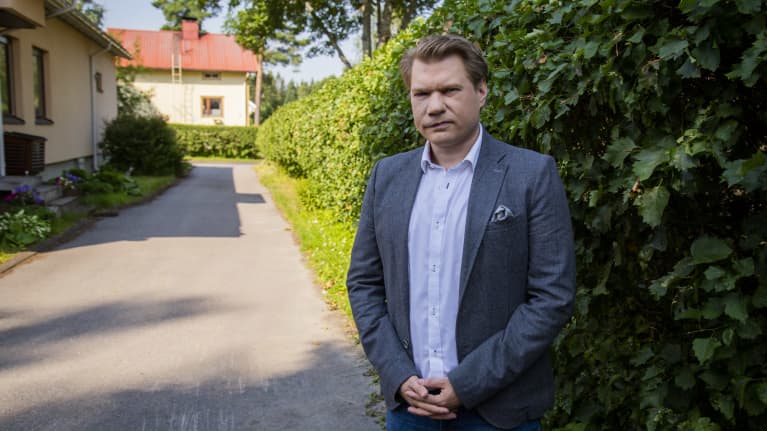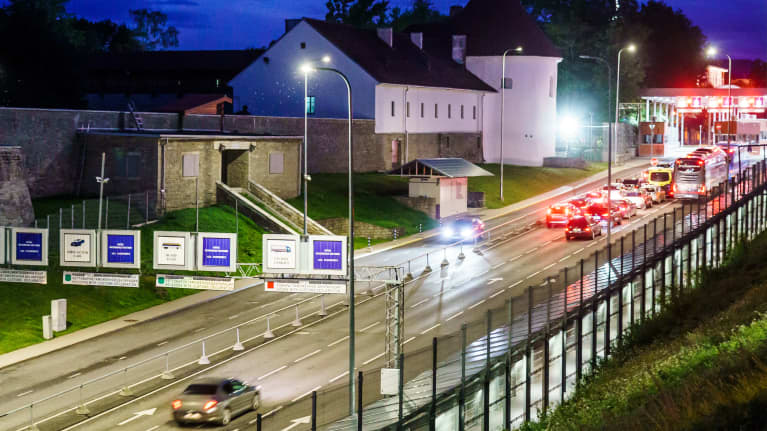Finland's government will meet on Tuesday to discuss placing restrictions on tourist visas for Russian citizens.
Prime Minister Sanna Marin (SDP) has called for an EU-wide decision on limiting entry into the Schengen area by Russian tourists. She added that she expects the issue will be raised at EU meetings, the first of which is scheduled for October.
However, there is not as yet unanimous support among EU member states for restricting travel by Russian citizens. A joint EU decision would be the most effective option, according to researchers, but individual countries are preparing to make their own decisions.
The idea of extending EU sanctions to cover tourist visas — which has been pushed in particular by Finland and the Baltic countries — coincides with the holiday season in Central Europe, which makes it impossible to predict how much support it will receive.
Helsinki University academic Timo Miettinen told Yle that Russian tourists are so important to the economies of many EU countries that the unanimous decision required will be difficult to achieve.
"If you think about travel restrictions for ordinary Russians, I believe that at the moment there is not full support for it in Europe among the 27 member states," Miettinen said, noting that many countries have not yet publicly stated their position on the issue.

German Chancellor Olaf Scholz said earlier this week that he had reservations about imposing extensive restrictions on travel by Russian citizens.
Germany has previously emphasised that the entire Russian people must not be blamed for President Vladimir Putin's war.
Opposition to blanket ban
EU countries have banned Russian airplanes from entering their airspace, but there is still land access to the EU via Finland, Estonia and Latvia, and from Kaliningrad to Lithuania and Poland.
The Estonian border will close to most Russians next week, when the Baltic nation stops accepting visas. Estonia's Foreign Minister Urmas Reinsalu said that allowing tourists to enter the Schengen area via Estonia is against the principles of the EU's commonly agreed sanctions. Other Baltic countries, as well as Poland, have also tightened their visa policies.
Jussi Lassila, a Senior Research Fellow at the Finnish Institute of Foreign Affairs, told Yle that he hopes any decision to restrict Russian tourists from entering the EU will be made following calm deliberation, and not in a "fit of emotion".
Large-scale visa bans would be counterproductive, he added, because access to the West is an important lifeline for the Russian opposition too. Many prominent members of the Russian opposition movement have expressed concern about the possibility that visas would be restricted.
However, those in favour of restricting visas have argued that such a move is justified because ordinary Russians are quietly accepting their country's war in Ukraine.

The idea of collective guilt, however, does not apply in a situation where the opposition has been crushed and there is no real possibility of protest, Lassila pointed out.
"If this rhetoric is so one-sided, that the baby should go out with the bathwater, I think it is morally wrong, but also politically short-sighted," he said.
Majority of Russians do not holiday abroad
Czech Foreign Minister Jan Lipavský has advocated the abolition of tourist visas as an effective sanction against Russia. His country currently holds the rotating EU Presidency.
Lipavský told reporters earlier this week that he plans to present the issue to EU foreign ministers at an informal meeting in Prague at the end of August. Finland will also seek the support of EU countries at the same meeting, although no formal decisions will be made.
The Finnish government does not yet have a definitive position on how to restrict Russian tourism. The Ministry of Foreign Affairs has been exploring various options, one of which is to make it more difficult in practice to obtain a tourist visa. The government will consider the options at Tuesday's informal evening meeting.
The anger over Russia's war in Ukraine is, in Lassila's view, perfectly understandable, but he added that restricting travel by ordinary Russian people could turn into a victory for Putin. A decision to deny Russians travel visas could, he noted, be easily seen as yet another example of the West's hostility.
The idea that closing the border would increase discontent within Russia and turn people against Putin's regime is unlikely, Lassila added, noting that the vast majority of Russians do not holiday abroad and would be in no way affected by such a move.
In reality, restricting travel visas would probably serve Russia's long-term goal of separation from the West, and would in turn provide a boost for the domestic tourism market, which would also be to Russia's advantage.
However, Lassila said he supports the proposal to increase visa fees and redirect the revenue to Ukraine. He also thinks it would be important to remind people of the war when they arrive at the Finnish border.
"As a concrete measure, I would like to see the conditions for tourist visas tightened. But that is different from not issuing visas at all," he said.
